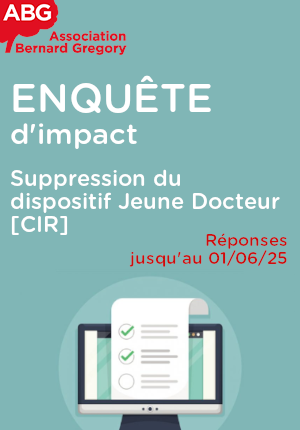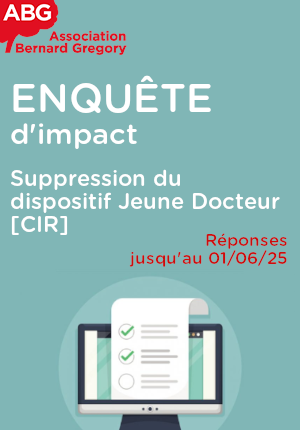Etude et optimisation d’une machine frigorifique de Stirling
| ABG-132005 | Thesis topic | |
| 2025-05-15 | Public funding alone (i.e. government, region, European, international organization research grant) |

- Energy
Topic description
La problématique de la thèse est celle de la production de froid respectueuse de l’environnement, c’est-à-dire sans fluide frigorigène. En effet, les technologies actuelles de production de froid reposent sur un cycle à compression de vapeur qui utilise des fluides frigorigènes. Ces fluides contribuent au réchauffement climatique et sont caractérisés par un Global Warming Potential (GWP) en général très largement supérieur à un. Il existe donc un besoin de technologie alternative. Associée à un moteur électrique qui l’entraîne, la machine Stirling peut fonctionner en mode production de froid sans utiliser de fluide frigorigène.
Les travaux porteront sur la modélisation et la validation expérimentale d’une machine frigorifique de Stirling fonctionnant avec un gaz de travail neutre (azote, hélium). Une nouvelle architecture de régénérateur sera étudiée. Les travaux seront complétés par une analyse exergétique des performances de la machine. En fin de thèse, ces travaux seront intégrés dans un modèle de consommation domestique (type modèle du CREST) incluant l’analyse en cycle de vie.
Calendrier prévisionnel :
M1-M4 : Etude bibliographique
M4-M16 : Développement d’un modèle de machine intégrant un nouveau concept de régénérateur
M16-M24 : Validation expérimentale
M24-M30 : Intégration à un modèle global permettant d’évaluer les impacts
M30-M36 : Rédaction des articles et publications, préparation de la soutenance
----------------------------------------------------------------------------------------------------------------------------------------
This thesis addresses the issue of environmentally-friendly refrigeration production, i.e. refrigerant-free refrigeration. Current refrigeration production technologies are based on a vapour compression cycle that uses refrigerants. These fluids contribute to global warming and are characterised by a Global Warming Potential (GWP) generally well in excess of one. There is therefore a need for an alternative technology. Combined with an electric motor that drives it, the Stirling machine can operate in cold production mode without using refrigerant.
The work will focus on the modelling and experimental validation of a Stirling refrigeration machine operating with a neutral working gas (nitrogen, helium). A new regenerator architecture will be studied. The work will be completed by an exergy analysis of the machine's performance. At the end of the thesis, this work will be integrated into a domestic consumption model (of the CREST type) including a life cycle analysis.
Provisional timetable :
M1-M4: Bibliographical study
M4-M16: Development of a machine model incorporating a new regenerator concept
M16-M24: Experimental validation
M24-M30: Integration into a global model for assessing impacts
M30-M36: Drafting of articles and publications, preparation of thesis defense
Starting date
Funding category
Funding further details
Presentation of host institution and host laboratory
L’institut FEMTO-ST (Franche-Comté Electronique Mécanique Thermique et Optique – Sciences et Technologies, UMR 6174), est une unité mixte de recherche, placé sous la tutelle du Centre National de la Recherche Scientifique (CNRS) et de l'Université Marie et Louis Pasteur et des ces deux établissements-composantes SUPMICROTECH et UTBM.
L’institut FEMTO-ST est un laboratoire de recherche public d’envergure mondial de grande taille regroupant plus de 700 personnes. Les services soutien et support de l'activité scientifique sont structurés en services communs. L'activité scientifique est structurée en sept départements scientifiques et une équipe de recherche transverse (Récits) :
Département Automatique et Systèmes Micro-Mécatroniques - AS2M
Département d'Informatique et Systèmes Complexes - DISC
Département Energie
Département Mécanique Appliquée
Département Micro Nano Sciences et Systèmes - MN2S
Département Optique
Département Temps-Fréquence
PhD title
Country where you obtained your PhD
Institution awarding doctoral degree
Graduate school
Candidate's profile
|
Profil demandé / Applicant profile - Master ou ingénieur avec profil fort en mécanique énergétique - Master's degree or engineer with a strong profile in mechanical energy
Critères de sélection principaux : - expertise en mécanique, thermodynamique, transferts de chaleur, mécanique des fluides - utilisation de codes de calcul en conception mécanique (SolidWorks, Autocad ou équivalent) et en mécanique des fluides (ANSYS Fluent ou équivalent), simulation mutliphysique (COMSOL, FEM) - programmation : Matlab, Python, - fort goût pour l’expérimentation - des connaissances en aquisition de données (LabView) seront appréciées - anglais (rédaction d’articles, présentations orales, comunications avec des chercheurs internationaux) Preferred selection criteria: - expertise in mechanics, thermodynamics, heat transfer and fluid mechanics - use CAD (Computer-Aided Design) and CAE (Computer-Aided Engineering) for mechanical design (SolidWorks, Autocad or equivalent) and fluid mechanics (ANSYS Fluent or equivalent), multiphysics simulation (COMSOL, FEM) - programming: Matlab, Python, - a strong taste for experimentation - knowledge of data acquisition (LabView) would be appreciated - proficiency in English is essential (writing articles, giving oral presentations, communicating with international researchers)
Personal characteristics: - savoir travailler en équipe - être motivé par la recherche - avoir un esprit curieux, être consencieux
Personal characteristics : - have ability to work as part of a team, - be able to commit fully to the project, with a strong motivation for the proposed subject - be intellectually curious, conscientious and diligent.
|
Vous avez déjà un compte ?
Nouvel utilisateur ?
Get ABG’s monthly newsletters including news, job offers, grants & fellowships and a selection of relevant events…
Discover our members
 CASDEN
CASDEN  ANRT
ANRT  ONERA - The French Aerospace Lab
ONERA - The French Aerospace Lab  Nokia Bell Labs France
Nokia Bell Labs France  PhDOOC
PhDOOC  MabDesign
MabDesign  MabDesign
MabDesign  Laboratoire National de Métrologie et d'Essais - LNE
Laboratoire National de Métrologie et d'Essais - LNE  Aérocentre, Pôle d'excellence régional
Aérocentre, Pôle d'excellence régional  Tecknowmetrix
Tecknowmetrix  Institut Sup'biotech de Paris
Institut Sup'biotech de Paris  SUEZ
SUEZ  ADEME
ADEME  ASNR - Autorité de sûreté nucléaire et de radioprotection - Siège
ASNR - Autorité de sûreté nucléaire et de radioprotection - Siège  CESI
CESI  Ifremer
Ifremer  Généthon
Généthon  TotalEnergies
TotalEnergies  Groupe AFNOR - Association française de normalisation
Groupe AFNOR - Association française de normalisation







